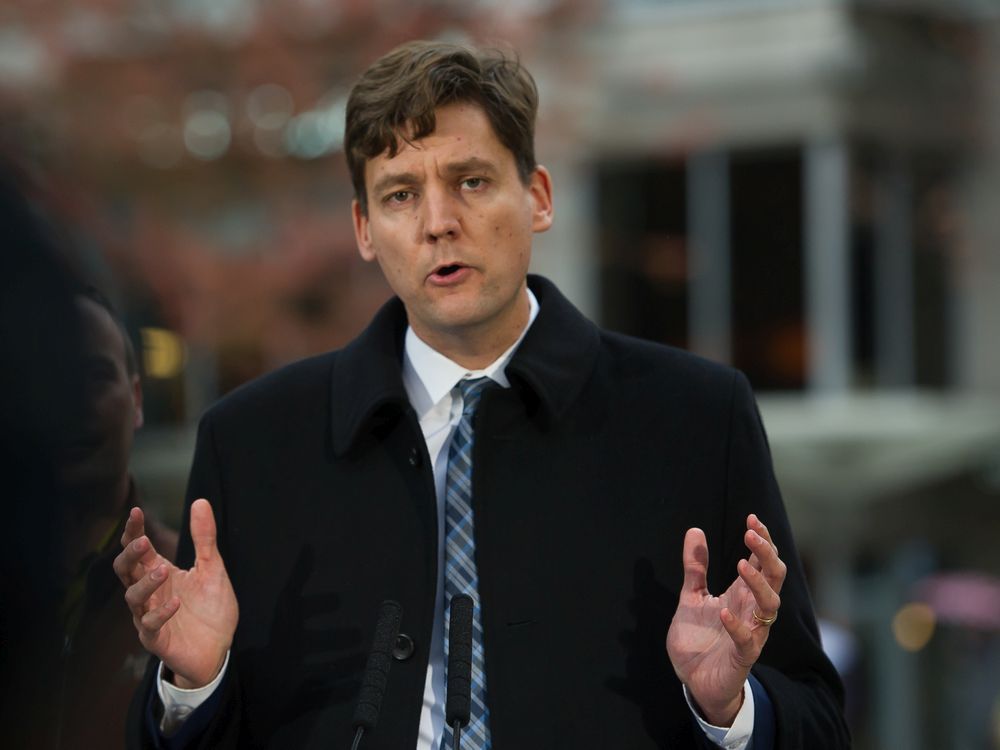Ian Mulgrew: Legal aid lawyers get pay hike

Credit to Author: Ian Mulgrew| Date: Wed, 16 Oct 2019 00:17:48 +0000
B.C. Attorney-General David Eby has given legal aid lawyers a pay raise that will cost taxpayers an additional $20 million a year, but he says the deal will provide long-term stability in the legal system.
He said lawyers who represent the province’s most needy were paid such a pittance, in many communities they were refusing to work for the Legal Services Society.
“The injustice of that kind of structure, where the lawyers who represent the most vulnerable are the worst-paid actors of any of the people in the courtroom, is an incredibly troubling situation, and one that we have moved to address with this,” Eby said Tuesday.
“The long-running underfunding of legal aid was profoundly unfair to British Columbians, especially in rural communities where there have been fewer and fewer lawyers — in some cases no lawyers at all — willing to take on dramatically underpaid legal aid cases. Those bad old days are behind us.”
The new agreement sets a minimum level for essential services in future negotiations, even if talks break down, he added.
Ironically, the announcement came on the day staff lawyers from the Legal Services Society, who service Legal Aid centres, voted 100 per cent in favour of strike action. The 26 lawyers, predominantly women and Indigenous individuals, make about a third less than their Crown counsel colleagues.
Eby, along with the other stakeholders, said the new pact with independent lawyers marked the beginning of a positive working relationship after decades of acrimony, and established a formal structure between the Association of Legal Aid Lawyers, the Legal Services Society and the government.
“(That) will pave the way for smoother negotiations in the future.”
Chris Johnson, a director of the 645-member association, hailed the deal as “historic.”
It establishes a relationship that previously did not exist, he said, despite the province having a similar relationship with almost every other stakeholder — judges, Crown counsel, sheriffs and administrative staff.
The triumvirate also pledged to create a consultation process to discuss legal aid policy and access-to-justice issues during the two-and-a-half-year term of the agreement.
“We want to thank minister Eby and the provincial government for engaging us in this process, for taking the organization and the issues seriously,” said Johnson, a veteran Vancouver defence lawyer.
“We believe this agreement significantly improves our relationship with the government, a relationship that for decades has been neglected and a source of frustration for many.”
In the face of a threatened strike in March, Eby reached a truce with the lawyers who haven’t seen a wage increase since 2006.
A one-time grant of $7.9 million — $4 million from government and $3.9 million from Legal Service Society reserve funds — which gave the bar an interim 25 per cent pay hike, eased the immediate crisis and provided time for negotiations.
“It is embarrassing how poorly previous governments have treated the lawyers who help refugees, as well as those who are poor, marginalized and often face serious mental health and addiction challenges,” Eby acknowledged.
The lawyers only increase in 28 years took the average tariff from $80 to $88 an hour. The government could not immediately say how much of an increase in the average tariff the new deal will fund.
“For the first year, the incremental amount is $6.1 million, and for the following years, because we’re well through (this) fiscal year, it’s $20 million a year,” Eby said of the cost.
He acknowledged none of the money will be used to increase the scant level of services or broaden the current strict eligibility criteria that essentially exclude from legal aid all but the poorest or those facing violence in domestic relationships.
Still, it was good news.
“The Legal Services Society welcomes the news that lawyers who work on behalf of legal aid clients will be better compensated,” said Jean Whittow, chair of the board.
Ken Armstrong, Canadian Bar Association-B.C. branch president, similarly celebrated.
“The new funding shows the B.C. government is making progress toward its obligation to provide British Columbians with an accessible and sustainable legal aid system, and the tariff is a vital part of that system,” he said.
“We’ve advocated for years to increase the tariff and bring it in line with the actual overhead costs faced by lawyers who represent legal aid clients in this province.”
Legal aid funding was slashed more than 40 per cent in 2002 by the first of a succession of Liberal administrations that beggared the agency.
The Legal Services Society went from handling just over 47,000 cases in 2002 to fewer than 30,000 annually.
It has never recovered and this year will receive about $92 million, about the same amount it received at the turn of the century before its budget was slashed.
There were some 1,500 practicing legal aid lawyers at that time, today there are only about 1,000.
Eby said the result of the Liberal policies has been a generation of clogged courts, unfair processes affecting vulnerable people, backlogs, delays and a crisis of needy individuals being forced to represent themselves in complex proceedings.
“I am so proud that our government is addressing this injustice.”